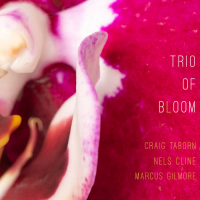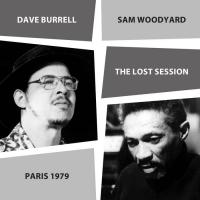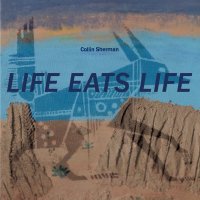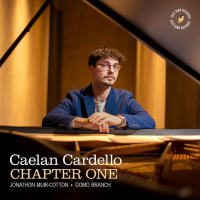Home » Jazz Articles » Album Review » Komeda Project: Requiem
Komeda Project: Requiem

Tomasz StaЁҪko
trumpet1942 - 2018

Russ Johnson
trumpetb.1965

Scott Colley
bassb.1963

Nasheet Waits
drumsb.1971
The opening, three-part suite "Night-time, Daytime Requiem"—also covered on Stanko's Komeda tribute, Litania (ECM, 1997)—reflects Komeda's compositions from the sixties, an era of relative hopefulness and openness in Communist-ruled Poland. He wrote it after the death of 
John Coltrane
saxophone
1926 - 1967
This ensemble has developed its own voice and its own pulse; a collaborative, patient and slow-burning exploration of Komeda's compositions. A warm and melancholic sound is found on "Ballad for Bernt" (from Knife in the Water (1962) and "Litania," which features the warm sounds of Johnson and Medyna. The post-bop, hard-swinging arrangement of "Astigmatic" is led by Medyna's serpentine sax solo, while "Prayer and Question" features Winnicki's most unfettered solo of the set. Winnicki's engaging arrangements breathe new and fresh into these beautiful melodies.
">Track Listing
Night-time, Daytime Requiem (Part 1-3); Ballad for Bernt; Dirge for Europe; Astigmatic; Elutka; Prayer and Question; Litania; Anubis.
Personnel
Komeda Project
band / ensemble / orchestraRuss Johnson: trumpet, flugelhorn; Krzysztof Medyna: tenor and soprano saxophones; Andrzej Winnicki: piano; Scott Colley: bass; Nasheet Waits: drums.
Album information
Title: Requiem | Year Released: 2010 | Record Label: WM Records
Tags
Comments
About Komeda Project
Instrument: Band / ensemble / orchestra
PREVIOUS / NEXT
Support All About Jazz
 All About Jazz has been a pillar of jazz since 1995, championing it as an art form and, more importantly, supporting the musicians who make it. Our enduring commitment has made "AAJ" one of the most culturally important websites of its kind, read by hundreds of thousands of fans, musicians and industry figures every month.
All About Jazz has been a pillar of jazz since 1995, championing it as an art form and, more importantly, supporting the musicians who make it. Our enduring commitment has made "AAJ" one of the most culturally important websites of its kind, read by hundreds of thousands of fans, musicians and industry figures every month.


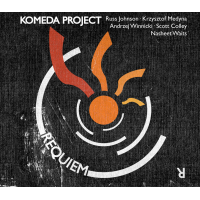






 Buy Now
Buy Now




